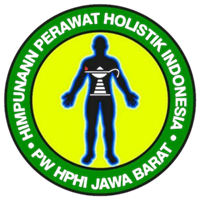Application of Positive Aspect Ability to Increase Self-Actualization for Low Self-Esteem Patient
DOI:
https://doi.org/10.56359/gj.v3i2.122Keywords:
self-actualization, low self-confidence, positive aspectsAbstract
Objective: To present care with the intervention of applying positive aspects of ability to increase self-actualization for patients with low self-esteem.
Method: This case study design with a nursing care approach which includes assessment, determining diagnoses, nursing plans, nursing actions and nursing evaluations. In this case study the method used is descriptive analytic. The subject of this case study is 1 client with low self-esteem in the Tanjung BLUD Room, Banjar City General Hospital. With data collection techniques include interviews, observation and documentation studies.
Results: The results of nursing care, it was found that subjective data was rejected by a woman, often locked herself at home because she felt ashamed and was often ridiculed by her friends, patients did not participate in activities in the community. And the objective data are low and weak voices, speech is not audible, the patient looks restless, confused and looks sad, the patient sometimes seems to be talking to himself, his eyesight is lacking, eye contact is lacking, the patient looks a little lowered and his concentration is easily distracted. There are nursing problems found, namely low self-esteem. So that the intervention given is the application of positive aspects of ability.
Conclusion: The intervention of applying positive aspects of ability is proven to be effective in increasing self-actualization of patients with low self-esteem. As long as the recommended action is the patient is cooperative.
Downloads
References
Alaimo, A., Esposito, A., Orlando, C., & Simoncini, A. (2020). Aircraft Pilots Workload Analysis: Heart Rate Variability Objective Measures And NASA-Task Load Index Subjective Evaluation. Aerospace, 7(9), 137.
Aprilianto, E., Lumadi, S. A., & Handian, F. I. (2021). Family Social Support And The Self-Esteem Of Breast Cancer Patients Undergoing Neoadjuvant Chemotherapy. Journal Of Public Health Research, 10(2), Jphr-2021.
Boham, E. A., Dankyi, L. A., Ocansey, F., & Awabil, G. (N.D.). The Effects Of Assertiveness Training And Cognitive Restructuring On Low Self-Esteem Among University Students In Ghana.
Handayani, S. (2020). Buku Ajar Aspek Sosial Kedokteran: Edisi 2. Airlangga University Press.
Huber, S. G., & Helm, C. (2020). COVID-19 And Schooling: Evaluation, Assessment And Accountability In Times Of Crises—Reacting Quickly To Explore Key Issues For Policy, Practice And Research With The School Barometer. Educational Assessment, Evaluation And Accountability, 32(2), 237–270.
Kun, B., Urbán, R., Bőthe, B., Griffiths, M. D., Demetrovics, Z., & Kökönyei, G. (2020). Maladaptive Rumination Mediates The Relationship Between Self-Esteem, Perfectionism, And Work Addiction: A Largescale Survey Study. International Journal Of Environmental Research And Public Health, 17(19), 7332.
Manoach, D. S., & Stickgold, R. (2019). Abnormal Sleep Spindles, Memory Consolidation, And Schizophrenia. Annual Review Of Clinical Psychology, 15, 451.
Mehl, S., Schlier, B., & Lincoln, T. M. (2018). Does CBT For Psychosis Have An Impact On Delusions By Improving Reasoning Biases And Negative Self-Schemas? A Secondary Mediation Analysis Of Data From An Effectiveness Trial. Zeitschrift Für Psychologie, 226(3), 152.
Miller, C. E., Townsend, M. L., Day, N. J. S., & Grenyer, B. F. S. (2020). Measuring The Shadows: A Systematic Review Of Chronic Emptiness In Borderline Personality Disorder. Plos One, 15(7), E0233970.
Mufid, F. A. (2018). Perbedaan Tingkat Depresi Mahasiswa Fk Uii Angkatan 2014 Yang Mengikuti Lem Dengan Yang Tidak Mengikuti Lem Pada Kegiatan Belajar Berbasis Problem Based Learning (Pbl) Di FK UII. UII.
Obeid, S., Lahoud, N., Haddad, C., Sacre, H., Fares, K., Akel, M., Salameh, P., & Hallit, S. (2020). Factors Associated With Anxiety Among The Lebanese Population: The Role Of Alexithymia, Self-Esteem, Alcohol Use Disorders, Emotional Intelligence And Stress And Burnout. International Journal Of Psychiatry In Clinical Practice, 24(2), 151–162.
Putra, F. A., & Sukmonowati, W. (2021). HUBUNGAN KEPATUHAN MINUM OBAT DENGAN TINGKAT KEKAMBUHAN PADA PASIEN SKIZOFRENIA. Jurnal Ilmu Keperawatan Indonesia (JIKI), 14(1).
Rahma, U., & Rahayu, E. W. (2018). Peran dukungan sosial keluarga dalam membentuk kematangan karier siswa SMP. Jurnal Ilmu Keluarga & Konsumen, 11(3), 194–205.
Ramhit, K. S. (2019). The impact of job description and career prospect on job satisfaction: A quantitative study in Mauritius. SA Journal of Human Resource Management, 17(1), 1–7.
Shapovalov, R. A., & Kolpachnikov, V. V. (2022). Manifestations of psychological maturity and immaturity in men’s attitudes toward seeking professional psychological help. Person-Centered & Experiential Psychotherapies, 1–18.
Sutria, E. (2020). Intervention of nurse deficit self care in the skizofrenia patient: Systematic review. Journal of Nursing Practice, 3(2), 244–252.
Tripathi, N. (2018). A valuation of Abraham Maslow’s theory of self-actualization for the enhancement of quality of life. Indian Journal of Health & Wellbeing, 9(3).
Vieta, E., Pérez, V., & Arango, C. (2020). Psychiatry in the aftermath of COVID-19. Revista de Psiquiatria y Salud Mental, 13(2), 105.
Walther, S., Stegmayer, K., Wilson, J. E., & Heckers, S. (2019). Structure and neural mechanisms of catatonia. The Lancet Psychiatry, 6(7), 610–619.
Zebua, I. J. (2022). Manajemen Asuhan Keperawatan Jiwa Dengan Masalah Halusinasi Pada Penderita Skizofrenia: Studi Kasus.
Downloads
Published
How to Cite
Issue
Section
License
Copyright (c) 2022 Genius Journal

This work is licensed under a Creative Commons Attribution 4.0 International License.















